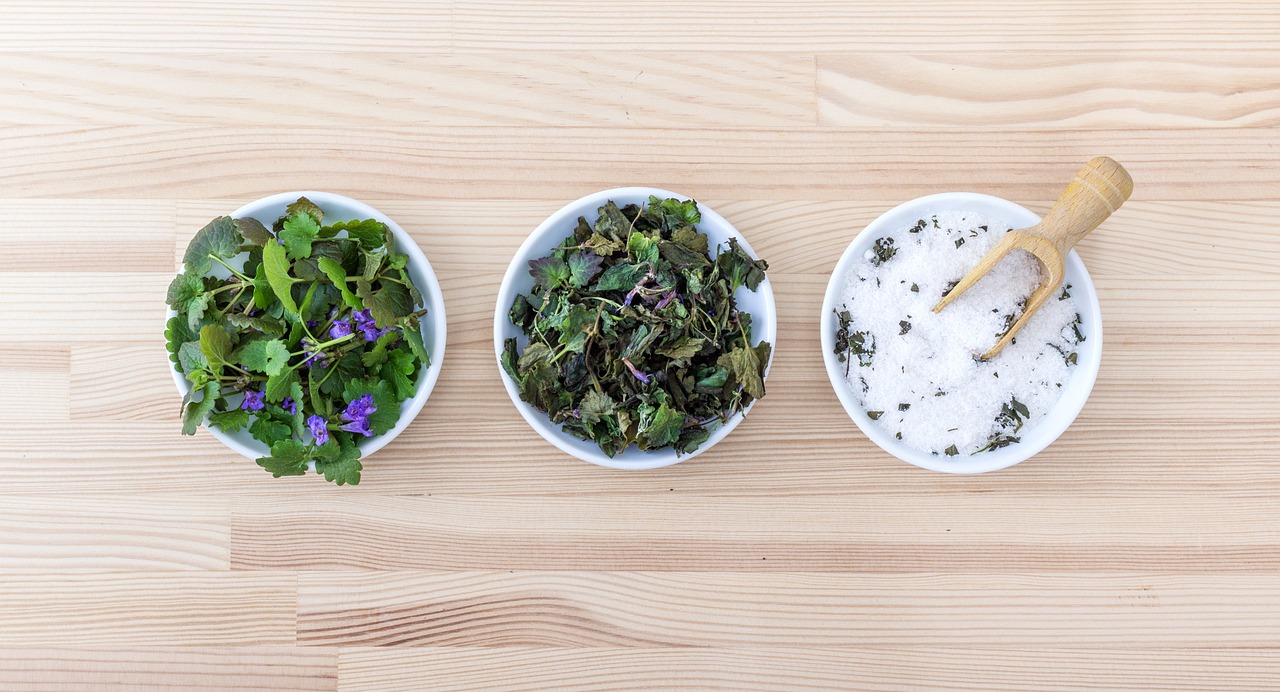I see herbalism as a sort of self sufficiency project. When I putz around the house and there is a child with a cough, I need a multi vitamin, or I notice something wrong I just go and brew up a cure instead of running to the store and really not knowing what I will end up with. To be sure I always have 40 or 50 mason jars around the house with different herbs in them and I have many different oils, but I know that I save a lot of money and come out with a better product by making what I need myself.
As I write articles in my Basic Herbalism series, I realized that many people do not have any idea of the ways that Herbs and Spices are used not just in Herbalism, but in our everyday lives. I also realize that I tend to use a sort of Herbal Vocabulary when I am writing these articles. Below I have included some clues to what I am talking about, these are part definition and part reasons to use different methods in herbalism (or Folk Medicine if you prefer).
These are some of the types of products we can (and often do) make for ourselves;
Herbal Bath Salts
Bath salts are a healing and nourishing addition to any bath. They can be relaxing or invigorating depending on what herbs and oils you add to your salts.
Herbal Compress
A Compress is made of a cloth soaked in an herbal tea then wrung out and laid on the affected area.
Herbal Decoctions
A decoction is an herbal preparation made by simmering plant material in water until the water is reduced by half. Decoctions are most often made from Hard plant materials like bark, roots and seed. Decoctions are a very effective way for extracting nutrients and other constituents.
Herbal Fomentation
A Fomentation is a compress applied to the body and kept warm.
Herbal Glycerites
An herbal Glycerite is uses Glycerin as an alternative to alcohol for tincture making, for those who wish to make tinctures without alcohol.
Herbal Infused Oils
Infusing herbs in oil extracts fats and fat soluble nutrients as well as volatile oils from the plants. Mostly we use these oils as a part of other remedies, however they can be massaged directly into the skin.
Herbal Liniments
A liniment is an herbal preparation made by infusing herbs in rubbing or grain alcohol. The liniment is applied to the skin allowing the herbs to penetrate quickly and do things such as relieving sore muscles and increasing circulation.
Herbal Lip Balms
What you may not know about commercial lip balms is that many of them actually damage the skin of your lips and make them dry and cracked. By using infused Oils and Bees Wax (and maybe flavoring oils) you can get an effective healing lip balm made just the way you want it.
Herbal Lotions
Using a Herbal Infused Oil and an Herbal Decoction (or an Herbal tea) plus and Emulsifier (to keep it well mixed) we can make our own lotions which far exceed anything you can buy in the store!
Herbal Lozenges
Herbal throat lozenges. Both simple dried Lozenges and Hard Candy Lozenges.
Herbal Poultices
A poultice is mashed plant material applied directly to the body on the affected area or wrapped in thin cloth and then applied.
Herbal Salves
Salves are great for small cuts, bug bites, fungal infections, itchy skin, recent tattoo’s and many more skin problems. By making your own Salve you can make exactly the right Salve for what you need. By making your own Salve you also have the advantage of using better ingredients than the commercial equivalent.
Herbal Soaps
Herbal soaps combine the properties of the healing properties of the Oils and Herbs you choose into a topical cleaner for your body.
Herbal Succus (juices)
Also know recently as a Nourishing Infusion (since the term succus is no longer in general use.) A succus is an herbal preparation where one ounce of a herb is allowed to steep in boiled water for at least 4 hours. These nourishing herbs are very much like food for our bodies. They are high in vitamins and minerals and are a great way to get nutrients. When we drink them, our bodies are much more able to use them than when they are taken in pill form.
Herbal Syrups
A syrup is an preparation made by adding honey to an herbal decoction or infusion. The honey adds another healing component to the preparation as well as making it sweeter.
Herbal Tea
Teas are a simple and effective herbal preparation. Teas are made by steeping dried herbs in boiled water for about 20 minutes, straining and drinking. Do not boil water with the Herbs in it!
Herbal Tinctures
Tinctures are made by infusing herbs in alcohol. Making a tincture is a great way of preserving the medicinal constituents of herbs since tinctures have shelf life of several years. Tinctures are a very convenient way of getting herbs into our systems since tincture dosages tend to be measured by drops.
Herbal Tooth Powder
Tooth powders can be used instead of toothpaste for brushing teeth.
Herbal Vinegars
Herbal vinegars are made by infusing herbs in vinegar. The vinegar will extract the nutritive qualities from the plant herbs. We can use these vinegars as salad dressings or in our cooking to add these vitamins and minerals to our diet.
Herbal Wash
An herbal wash is an herbal tea splashed on an affected area of the body.
The Author:
Michael Kelly is an Herbalist based in Missouri’s Ozarks with his family.
